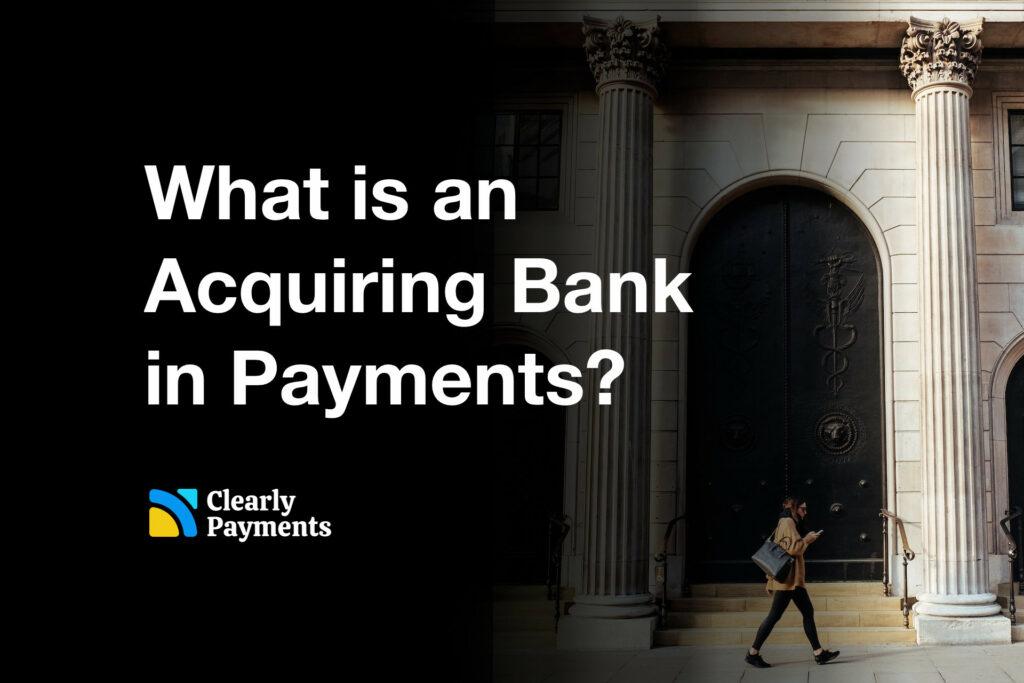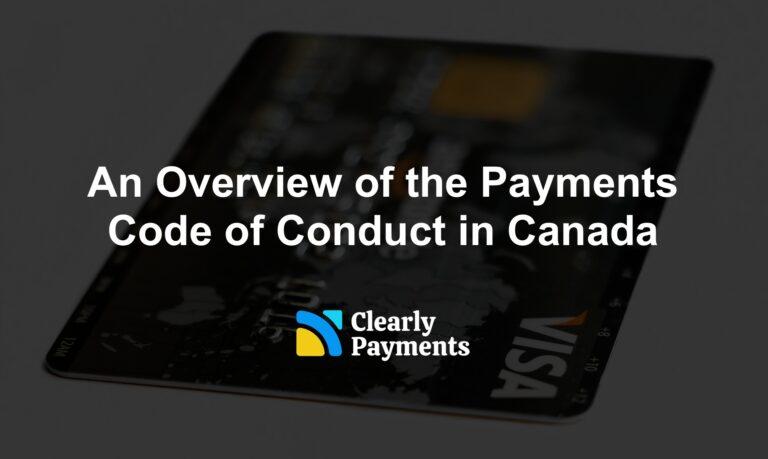Digital payments have become the norm over the past 10 year. Technology like the internet and mobile devices, along with the push to online shopping with the COVID 19 pandemic, has made digital payments huge.
Businesses of all sizes rely on the ability to accept various payment methods. Behind the scenes, acquiring banks play a vital role in enabling merchants to process these payments efficiently and securely. In this article, we will cover an overview of acquiring banks in payment processing, exploring their functions, responsibilities, and their significance in the overall payment ecosystem.
An acquiring bank, also referred to as a merchant bank or acquirer, is a financial institution that facilitates the acceptance of electronic payments from consumers. These banks act as intermediaries between the merchant, ISOs (or payment processors), the customer, and the issuing bank. Acquiring banks provide the necessary infrastructure and services to enable smooth and secure payment transactions.
You can also check out our article on the payment processing industry which goes into the full value chain of credit card processing.
Functions and responsibilities acquiring banks
Acquiring banks help establish and maintain merchant accounts for businesses. Most of the time, this is done by partners of acquiring banks called ISOs (Independent Sales Organizations) which we discuss more below. These merchant accounts are specific to each merchant and serve as a repository for the funds generated from payment transactions. The account setup process involves evaluating the merchant’s business model, financial stability, and compliance with industry regulations.
When a consumer initiates a payment using a credit or debit card, the credit card machines connect to the acquiring bank which takes on the responsibility of processing the transaction on behalf of the merchant. The bank communicates with the cardholder’s bank (the issuing bank) to obtain authorization for the transaction. Once authorized, the acquiring bank initiates the transfer of funds from the customer’s account to the merchant’s account.
Following the processing of payment transactions, the acquiring bank settles the funds into the merchant’s designated account. Settlements typically occur within a predefined timeframe, such as daily or weekly, depending on the agreement between the bank and the merchant.
Acquiring banks play a crucial role in managing the risk associated with payment transactions. They employ sophisticated security measures, fraud detection systems, and compliance protocols to protect against fraudulent activities, identity theft, and other security breaches. By implementing robust risk management practices, acquiring banks help safeguard the integrity of the payment system.
Acquiring banks also help charge fees to merchants, which include interchange fees and other transaction-related charges. These fees compensate the acquiring bank and other players for their role in facilitating payment transactions, managing associated risks, and providing support services to merchants. Fee structures may vary depending on the bank, the merchant’s industry, transaction volume, and other factors.
Collaboration within the Payment Ecosystem
To effectively carry out their functions, acquiring banks collaborate with various entities within the payment ecosystem:
Payment Processors and ISOs: Acquiring banks often work in partnership with payment processors. Payment processors act as intermediaries between the acquiring bank and the merchant’s point-of-sale (POS) system or e-commerce platform and work directly with merchants. They facilitate the secure transmission of payment data, perform initial transaction screening, and route transactions to the appropriate acquiring bank. They generally provide all the software, hardware, sales, and support services.
Card Networks: Acquiring banks collaborate with card networks such as Visa, Mastercard, American Express, and Discover. Card networks provide the infrastructure that allows payment cards to be used globally. Acquiring banks adhere to the rules and regulations set forth by card networks to ensure compliance and interoperability within the network.
Issuing Banks: Issuing banks, which provide payment cards to customers, are an integral part of the payment process. Acquiring banks interact with issuing banks to obtain authorization for transactions
The difference between an acquiring bank and an ISO (Independent Sales Organization)
An acquiring bank, also known as a merchant bank or acquirer, serves as a crucial player in the payment ecosystem. It establishes direct relationships with payment card networks such as Visa, Mastercard, and American Express, becoming a member of these networks and gaining the ability to process payment transactions on behalf of merchants.
They process payment transactions, handling authorization requests, fund transfers, and settlement processes between the cardholder’s issuing bank and the merchant’s account. Acquiring banks charge various fees for their services, including transaction and interchange fees.
Independent Sales Organizations (ISOs), like TCM, play a distinct role in the payment landscape. They act as intermediaries between acquiring banks, hardware and software providers, and merchants, focusing on sales and cultivating relationships with businesses.
ISOs enter into contractual agreements with acquiring banks, granting them the authorization to sell and market the bank’s payment processing services to merchants. In addition to facilitating the acquisition of merchant accounts, ISOs often provide value-added services such as terminal leasing, customer support, and fraud prevention tools to enhance the merchant’s payment processing experience. ISOs generate revenue through a sharing arrangement with the acquiring bank, receiving a percentage of the transaction fees collected from the merchants they have brought to the bank. They also assist merchants with compliance requirements, such as ensuring adherence to the Payment Card Industry Data Security Standard (PCI DSS), and offer ongoing support for payment processing-related issues.




